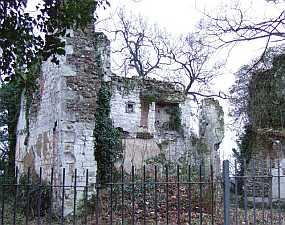In my little kingdom, I ride my little pony over my little rainbow. Every day is my day, every event my event.
In my little kingdom, we build on a foundation that is me. We do this because only I am worthy.
In my little kingdom, I never have to sacrifice, though you do. You’re a peasant, remember, but I’m a king.
In my little kingdom, the easiest way to make things happen is to throw a tantrum.  Because nothing beats a spectacle when attempting to prove one’s royal lineage.
Because nothing beats a spectacle when attempting to prove one’s royal lineage.
In my little kingdom, the littleness of it all means there’s just enough room for me. Let’s not even consider making room for those people.
In my little kingdom, nothing is more important than making me feel good about myself. Of course, this means that I will have to make other people feel bad about themselves. (That’s just the way it works. Sorry.)
In my little kingdom, we do what I want and not what you want. In fact, in my little kingdom, as far as I’m concerned, there is no you.
In my little kingdom, I’ve heard peasants talk of being “the bigger person.” I have no idea what that means, though.
And sometimes, the best place for me to pull out my little kingdom for all to see is when I interact with other people. Funny thing is, when I’m with others, it seems like each person has his own little kingdom. Except those other little kingdoms don’t matter as much as mine.
I once heard of a place where another Kingdom reigned.
In that other Kingdom, everyone is a servant, yet no one complains. In fact, people serve gratefully.
In that other Kingdom, people aren’t peasants, but children of the King. And the children treat each other as if each is the most important person in the world.
In that other Kingdom, no room for little kingdoms exists. That’s not because the Kingdom is too small, but because it’s too large.
In that other Kingdom, in times of lack, all lack together, and in times of plenty, all enjoy plenty together. The children even believe that giving their blessings away is better than keeping them all to themselves.
In that other Kingdom, it isn’t about living, but about dying. And no one would have it any other way.
In that other Kingdom, when one rejoices, all rejoice. Also, as unbelievable as it may sound, when one hurts, all hurt.
In that other Kingdom, all can become children of the King. Even those people.
In that other Kingdom, helping others become part of the Kingdom drives the children. Some even die so that others might come to live in the Kingdom.
In that other Kingdom, the foundation is the King. And He is love.
In that other Kingdom, one glimpses true meaning. Some even say that eternal life is found in the King of that Kingdom and in surrendering all to Him.
Hmm…
Sometimes, when all is quiet and I have to be alone with myself, I think about that other Kingdom and mine doesn’t seem so wonderful anymore.

 It’s the question of whether we see ourselves as sinners or saints.
It’s the question of whether we see ourselves as sinners or saints.